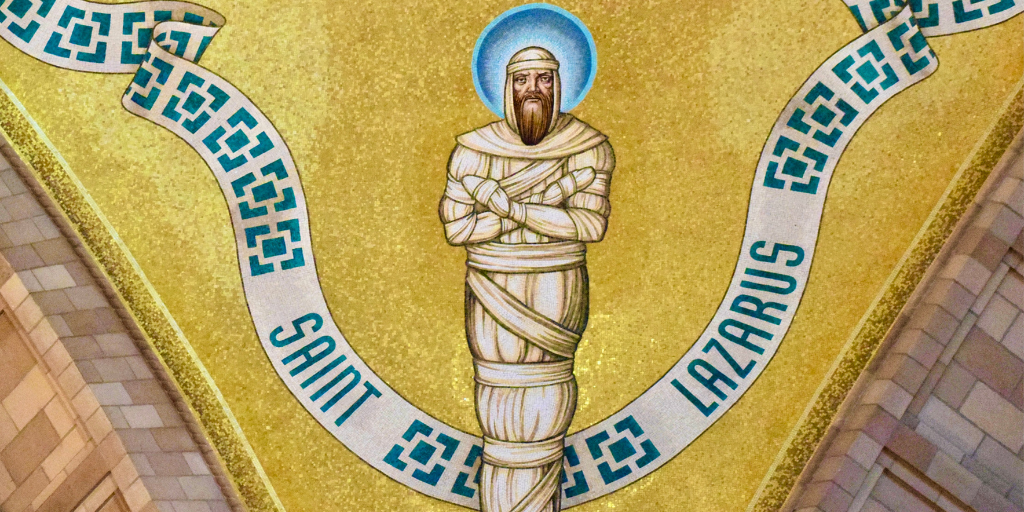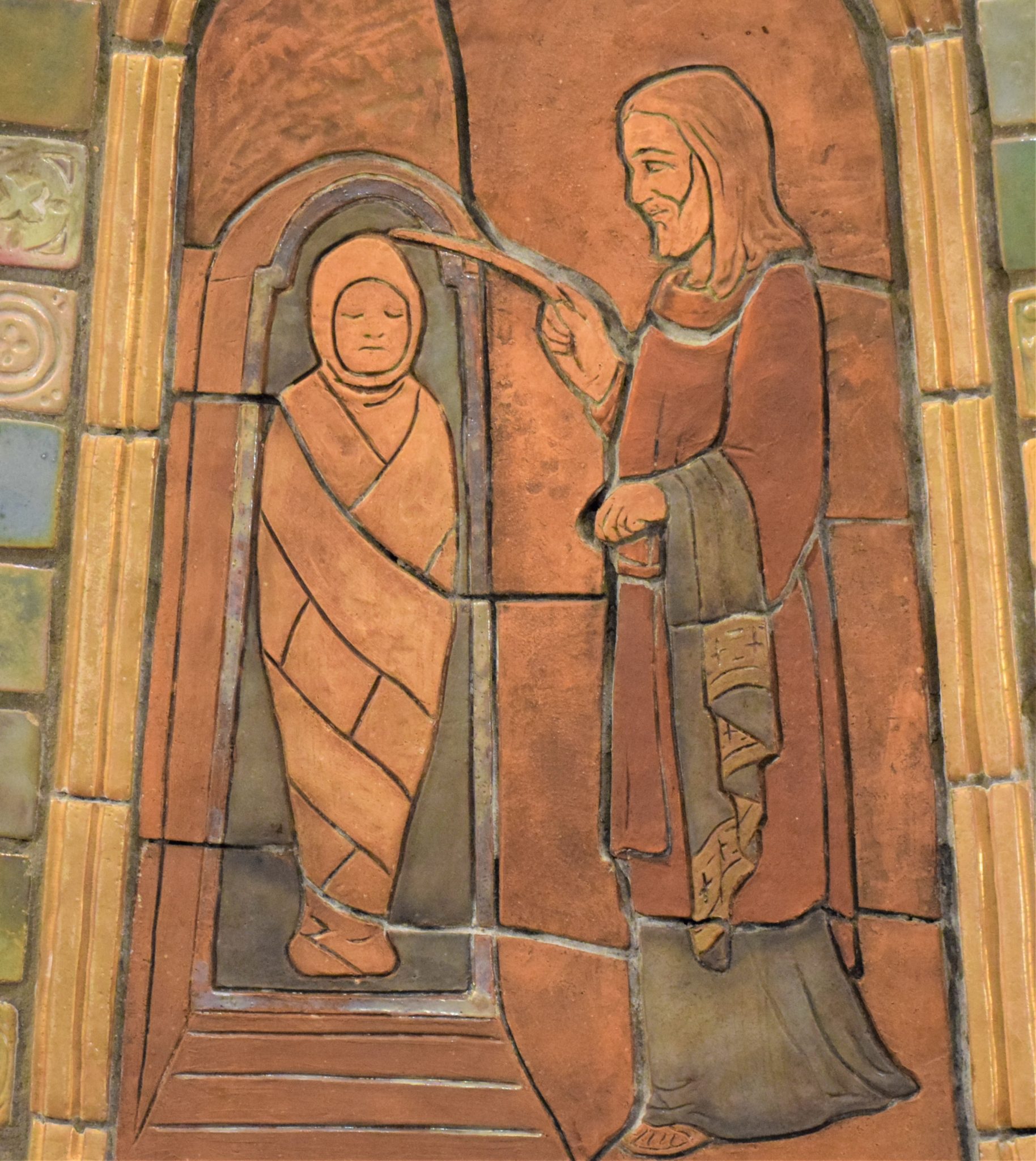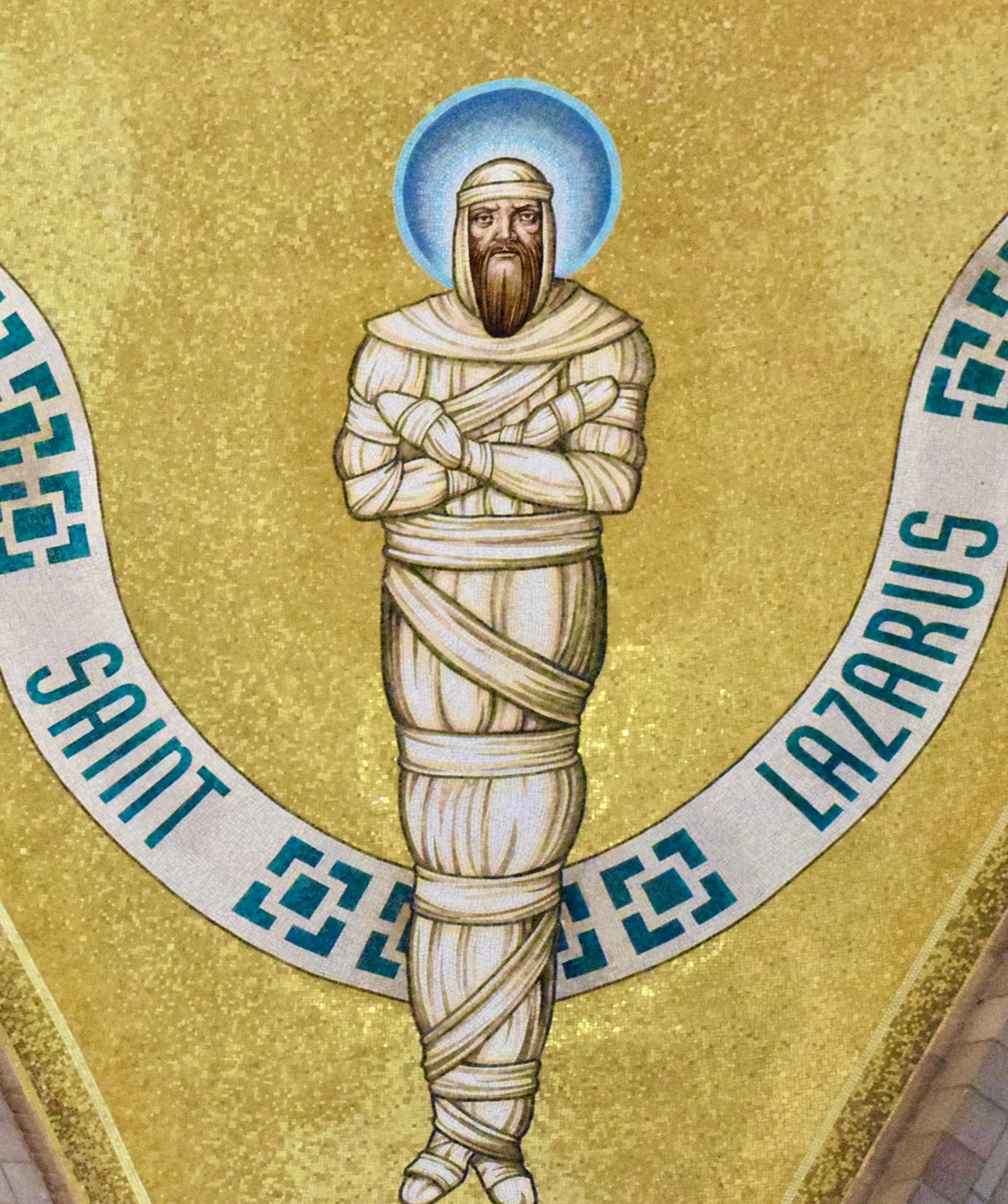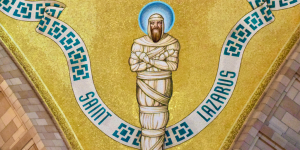
On July 29, we celebrate the feast day of St. Martha, in addition to her siblings, St. Mary, and St. Lazarus, whose inclusion in the celebration is new this year. While together their lives offer us a beautiful example of how to live a life of devotion and hospitality, the story of St. Lazarus reminds us that our God is a God who hears, and that we can have faith in His plans regardless of our circumstances.
Trusting God in the Midst of Uncertainty
The Bible first mentions Lazarus when he was in the town of Bethany and contracted a serious illness. Concerned for his life, Mary and Martha sent a note to Jesus to let Him know that their brother was unwell. They did not ask for Him to come and heal Lazarus, but simply wrote, “Master, the one you love is ill.” They had faith that Jesus would come to his aid. Because of His love for Lazarus, Jesus had a plan to make him well – but not in the way that Mary and Martha expected. Instead of going to Bethany and performing a miracle to heal Lazarus, Jesus stayed where He was, and let Lazarus die. When Jesus went to help them a few days later, Martha and Mary were unsure why He had waited to come. However, Martha knew that His ultimate plan was different than theirs. John 11:20-22 relates:
“When Martha heard that Jesus was coming, she went to meet him; but Mary sat at home. Martha said to Jesus, ‘Lord, if you had been here, my brother would not have died. [But] even now I know that whatever you ask of God, God will give you.’”
Raising Lazarus: Part of a Greater Plan

While Martha believed that Jesus still had a plan for their brother, many were questioning why Jesus would let Lazarus die – including Mary, who was greatly mourning his loss. When Jesus saw Mary’s distress, He was moved to tears, and asked to be shown the tomb where Lazarus was buried, so that it could be opened. Jesus then performed one of the greatest miracles ever recorded – He brought Lazarus back to life. John 11:41b-44 reads:
“And Jesus raised his eyes and said, ‘Father, I thank you for hearing me. I know that you always hear me; but because of the crowd here I have said this, that they may believe that you sent me.’ And when he had said this, he cried out in a loud voice, ‘Lazarus, come out!’ The dead man came out, tied hand and foot with burial bands, and his face was wrapped in a cloth. So Jesus said to them, ‘Untie him and let him go.’”
In raising Lazarus, Jesus displayed His power as the Son of God, the only person to have power over death. The profundity of Jesus’ miracle with Lazarus convinced so many people to follow Jesus that the Pharisees and priests plotted to kill Lazarus.
What We Can Learn from St. Lazarus

Before his death, Lazarus didn’t know that Jesus was planning to bring him back to life. He may have felt abandoned by Him in his time of need. However, his sister did not give up hope, and knew that regardless of the final outcome, Lazarus’ life would be used for the glory of God. His story offers encouragement for everyone going through difficult times, reminding us that God has a perfect plan for each of our lives in His own time.
No one can know for certain what the future holds, or how God will answer our prayers. Sometimes He brings tragedies or trials into our lives that make it difficult to see what His greater purpose is. We can start to wonder if He is even listening to our prayers at all. But just because our prayers are not always answered how or when we would like them to be, that does not mean God does not hear our requests. Our God is a God who listens. God is always faithful – and He makes all things in our lives happen for a reason, even if we cannot see it. Every joy, every tragedy, every trial we face is but a tiny piece in the great mosaic of His plan not only for our lives – but for the world. Our call is only to be faithful in the sphere in which he has placed us.
As Cardinal Dearden prayed in 1979:
“It helps, now and then, to step back and take a long view. The kingdom is not only beyond our efforts, it is even beyond our vision. We accomplish in our lifetime only a tiny fraction of the magnificent enterprise that is God’s work. Nothing we do is complete, which is a way of saying that the Kingdom always lies beyond us.
We cannot do everything, and there is a sense of liberation in realizing that. This enables us to do something, and to do it very well. It may be incomplete, but it is a beginning, a step along the way, an opportunity for the Lord’s grace to enter and do the rest. We may never see the end results, but that is the difference between the master builder and the worker. We are workers, not master builders; ministers, not messiahs. We are prophets of a future not our own.”
Sources:
Prophets of a Future Not Our Own: Prayer by Cardinal Dearden – USCCB
Light a Candle at the Basilica
 In honor of Saints Lazarus, Martha, and Mary, we invite you to light a candle today at the National Shrine. Vigil candles burn in the chapels throughout the Great Upper church and lower crypt level of the National Shrine. Each candle represents the faith of the supplicants and their fervent prayers entrusted to the loving intercession of the Blessed Mother.
In honor of Saints Lazarus, Martha, and Mary, we invite you to light a candle today at the National Shrine. Vigil candles burn in the chapels throughout the Great Upper church and lower crypt level of the National Shrine. Each candle represents the faith of the supplicants and their fervent prayers entrusted to the loving intercession of the Blessed Mother.

